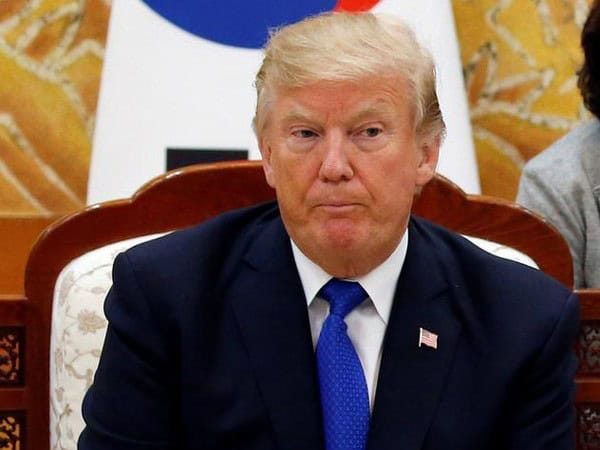Washington: Facing dark warnings of a historic misstep and widespread unrest, US President Donald Trump delayed a decision on whether to recognise Jerusalem as the Israeli capital and move the US embassy there.
The White House said Trump would miss a deadline to decide on shifting the embassy from Tel Aviv, after a frantic 48 hours of public warnings from allies and private phonecalls between world leaders.
The mercurial president has yet to make his final decision, officials said, but is expected to stop short of moving the embassy to Jerusalem outright, a central campaign pledge which has been postponed once already by the new administration.
“The president has been clear on this issue from the get-go: It’s not a matter of if, it’s a matter of when,” said White House spokesman Hogan Gidley, who said a declaration on the move would be made “in the coming days.”
Domestic politics may however push Trump toward recognising Jerusalem as Israel’s capital instead, in a gesture towards conservative voters and donors.
The status of Jerusalem is a key issue in the Israeli- Palestinian conflict, with both Israelis and Palestinians claiming the city as their capital.
With Trump’s decision looming, leaders from across the Middle East and elsewhere ramped up public warnings against any shift in decades-old US policy.
French President Emmanuel Macron was among those who warned Trump that Jerusalem’s status must be decided “within the framework of negotiations between Israelis and Palestinians.”
Amid internal White House disagreements, several US administration officials were unable or unwilling to say with certainty what Trump would decide.
“The president’s going to make his decision,” his Middle East peace envoy and son-in-law Jared Kushner said.
Israeli’s defense minister Avigdor Lieberman urged Trump to grasp a “historic opportunity.”
But from elsewhere in the region the message was clear: don’t do it.
“If the status of Jerusalem is changed and another step is taken… that would be a major catastrophe,” Turkish Deputy Prime Minister Bekir Bozdag said.
“It would completely destroy the fragile peace process in the region, and lead to new conflicts, new disputes and new unrest.

